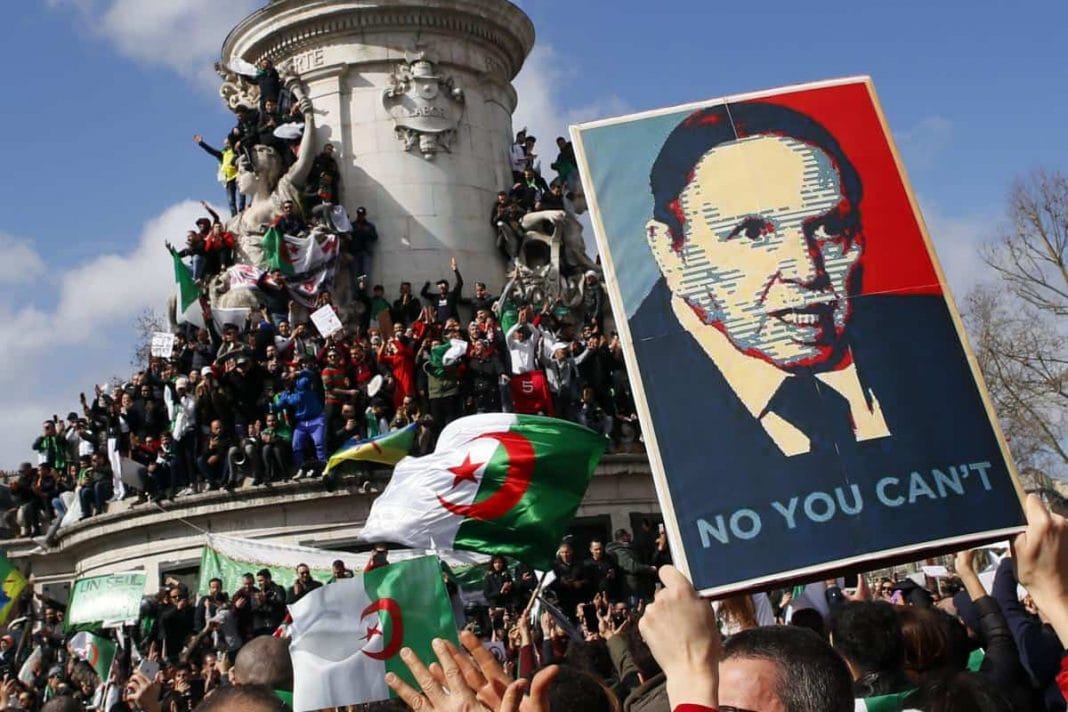Algeria’s economy emerged from the ‘black decade’ of civil war in the 1990s. As before the black decade, the model relied heavily on hydrocarbons. In 2014, 97% of total exports, two-thirds of state revenue, and one-third of GDP stemmed from hydrocarbons. Before the Civil War, the country’s dismal economic situation was a growing concern. As did the unemployment rate, the queues for overpriced and scarce food supplies grew.
President Chadli Benjedid announced economic reforms to liberalize Algeria’s socialist economy, split up major state corporations, and turned investment away from heavy industry and towards agriculture. Then, the oil price plunged in October 1985, and the economic situation worsened. Revenues from oil and gas were reduced by 40%. This resulted in significant cutbacks, a complete stop in development projects, and spiking unemployment. The government was forced borrow externally to cover budget deficits. The social and political knock-on effects resulted in the ‘black October’ riots 1988. The riots were quelled by force, which was one factor in the outbreak of the civil war.
A Fragile Stability
Following a decade of violence, Bouteflika conceded the presidency in 1999 and set out to focus on the economy. He exploited the global war on terror by establishing trade and security partnerships and alliances with the US and the West, which changed Algeria’s image and helped restore the economy. In the following decade, Algeria continued a stable and growing economic journey with a continued dependency on oil. The Arab Spring was the first uprising that threatened the regime. Instead of using force, the government announced opulent subsidiaries, a free housing program, and infrastructure investments, and it transitioned to a handout policy to secure Algerians economically and re-establish social order. The public spending paid off. Reports of corruption and inefficient spending were silenced. High oil prices enabled such public spending to acquire peace.
A Fragile Future
The oil price plunged again in 2014. At the time, Algeria was comfortable with $178 billion in foreign reserves and $37 billion in its sovereign wealth fund, funded by surplus hydrocarbon revenues. Today, $97 billion in foreign reserves remains whilst the sovereign fund has been emptied to cover annual budget deficits. However, measures have also been taken to attempt to counter the situation. The 2016 budget saw a 9% reduction in state spending, followed by a 14% reduction in 2017. State spending was further cut in 2018 and accompanied by quantitative easing – increasing cash flow from the central bank by issuing government bonds.
Quantitative easing might see a short-term improvement, yet it is a questionable method for achieving long-term stability. Economic experts believe it will exacerbate the current inflation trend and higher living costs and discourage foreign investment. Others have summarised quantitative easing as a measure to simply stack up liquidity at the risk of inflation to buy time, indicating that the measures taken at this point are reactive measures taken to an assumed short-term problem rather than measures taken as part of a long-term plan.
The Algerian rule remains confident that oil prices will rise again and bring prosperity with it. Meanwhile, streets in Algiers are filled with demonstrators protesting against Bouteflika’s continuous rule. State revenues diminished from $ 74 billion in 2007 to $24 billion in 2017 while the import cost of fuel and food increased. A youth bulge with 70% of the population under thirty and a youth unemployment rate of 30%. Algeria must diversify its economy to create sustainable economic growth, stimulate job creation, and reduce import costs. Without economic reforms, regardless of how the current uprising plays out, socio-political problems will threaten Algeria’s stability in the long term.

